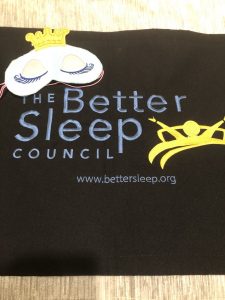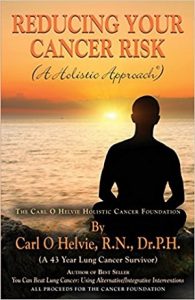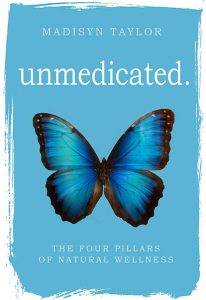Feng Shui Fixes for Fabulous Sleep!
May is Better Sleep Month and The Better Sleep Council is celebrating by helping all of us to be #BetterInBed – when it comes to sleep, of course!
Your bedroom is not only your sanctuary, your retreat from the world, your place of rest – it’s the one room where you spend the most time. Feng Shui is the ancient Chinese science that works with the energy of the earth to make spaces most harmonic and peaceful. This energy, or “chi,” when used positively can help strengthen relationships, support health, promote wealth, and also help you to achieve better sleep. Feng Shui shows us how, with just a few simple adjustments, the energy in the bedroom can work for you, even while you sleep!
Location, Location, Location
Where the bedroom is located within the house can affect how well you sleep. Feng Shui advises to choose a bedroom that is at the back-end of the home, close to the backyard. This area is usually much quieter because front-end rooms are closer to the street, and hence street noise. With a room near backyard you also get more privacy, so you feel safer.
If you have a two-story home, avoid stationing your bedroom over the garage. Having a room on top of the garage is disruptive to sleep for many reasons: noise, smells, warmer temperatures, and even insects. For similar reasons, it’s best to not place your bedroom over the kitchen, particularly over the stove. Much heat comes from the kitchen due to the appliances, and this will affect the temperature of the room above, as heat rises.
You also want to avoid placing your first-floor bedroom below very active areas. You can imagine how sleep would be affected if you’re hearing laughter, a TV, footsteps, or a toilet flushing right over your head. Fortunately, apartment buildings and hotels tend to have thick sound-proof flooring so that this doesn’t apply in those circumstances.
Size Matters
When it comes to both size of the bedroom, and size of the bed, we’re looking for that “Goldilocks” fit: not too big, not too small, but “just right!” We are at our most vulnerable when we are asleep. If the room is too big, it can be difficult for us to fully relax enough to sleep soundly. This feeling of needing to be “on alert” is a survival instinct from way back when. If the room is too small, we can feel cramped, or trapped, like we’re in a prison cell.
A twin sized bed is generally too small for an average-sized adult to feel comfortable in. Most colleges provide “XL Twin” mattresses in their dormitories for this reason. A full-size or queen-size bed is usually a good fit for most adults. If you happen to play in the NFL or NBA, you’re going to want a King size bed for your large frame! Most couples are happy with a Queen mattress. If you prefer a King, look for one that does not have split box springs under the mattress, so as not to create “disharmony” in your relationship, according to Feng Shui.
The Command Center
Feng Shui says that the bed should be placed in a “commanding position” in the bedroom. When you are lying in bed, you should be able to see the door in front of you so that you have a feeling of safety and stability – you can easily see when someone or something enters your space. The wall opposite the door is the best place to position the bed. At the same time, you do not want to be directly in front of the door. The head of the bed should be placed against a wall, and there should be a headboard to “stabilize” the bed’s position in the room. Ideally there should be equal space on either side of the bed so each person can get in and out easily and the room feels balanced. In the command center you want to have access to turning on the light quickly and easily.
Avoid putting the head of the bed under a window. Windows represent the gateway from the bedroom to the outside world. Having your head right under a window affects sleep from all the energy that comes from the outside – including noise, light, wind, scents, and shadows. When you sense something unfamiliar, that survival instinct kicks in and you wake up, and it can be difficult to fall back asleep.
Circulation
It is important that chi, or energy, be allowed to circulate freely throughout the room, and around and under the bed. For this reason, clutter should be kept to a minimum. The bed should be elevated off the floor on a frame or a platform, not placed directly on the floor. Don’t store boxes, books, or shoes under the bed; leave that space open for chi to flow through. Don’t overcrowd the room with furniture, and keep any work-related, or exercise-related items out of the bedroom. This works on a practical level as well – as you probably know the agony of stubbing a toe in the middle of the night. How can you not wake up after that?
A clean and organized bedroom also helps you to feel more relaxed, and that is good preparation for sleep.
For the best sleep, all doors and windows should be kept shut to keep out noises and smells. Closet doors and cupboards should also be closed at night so that chi can circulate in the room and not get “stuck” in small spaces. During the day, open windows to allow fresh air in.
Décor
When it comes to décor, choose colors that are soothing and relaxing. Nature’s colors, blues, greens and browns, are ideal. Think of the sky, a field of trees, a beautiful meadow, this is the feeling you want to evoke. Warm colors signify activity and are energizing, so avoid colors like bright reds, pinks and oranges. If you like those tones, choose more muted versions such as peach, maroon, or lavender.
For wall décor, choose artwork that makes you feel happy. A beautiful floral design is more likely to make you feel relaxed than a painting of a shipwreck, for example. Think about what you see when you first wake up in the morning, and how you want it to make you feel.
It is always best to keep electronics out of the bedroom, but if you insist on having a TV in the room, keep it in a media cabinet behind closed doors. You can also cover it with a pretty blanket or piece of fabric when not in use. This way you don’t have a big black void taking up valuable space in the room.
Mirrors are not generally recommended in the bedroom per Feng Shui. The main rule is that you don’t want to see yourself in the mirror when you’re in bed. This can be startling, and disturb your sleep. So, if you want to have a mirror in the room, place it inside the closet door. Also, mirrors that are round, or oval, are preferred because they can help with the flow of energy in a room, and the shape symbolizes continuity in a relationship.
Keep water features, such as fountains, out of the bedroom. The sound can be disruptive to sleep, and the sound of water might make you feel like you need to get up to use the bathroom!
Lighting should be set on dimmers wherever possible, so you can control the light in the room and have options depending on how much light you need during any time of day.
Comfort is Key
Feng Shui recognizes how important it is that the bedroom be a comfortable place to rest. The room needs to be cool, a nice 68 degrees is good. The room should also have good windows treatments to block out lights from outside. Most importantly, your mattress is the foundation of a good night’s sleep. Invest in the best mattress you can afford. And make sure your mattress continues to support you with time. Mattresses generally need to be replaced every 5-7 years, so keep checking to make sure your mattress is in good shape.
Bedding is also important. Choose soft fabrics that are comfortable against the skin. Pure cotton is best, as it breathes. A standard rule of thumb is that the higher the thread count, the softer the sheets. Blankets should also be soft and cozy. And don’t go crazy with the pillows! Beds with too many decorative pillows can feel cluttered and crowded. You need one great pillow to actually sleep on, one that works for your preferred sleep position. Pillows you sleep on need to be replaced about every 2 years. After that, one or two decorative pillows is sufficient.
A good night’s sleep prepares us for a good day’s activity. When we implement some of these feng shui strategies to circulate chi in the bedroom, it helps us to have good energy, too!
More tips for Better Sleep from the Better Sleep Council.
Feng Shui Living Room Make-Over on YouTube.com/CoffeyTalk











 Guest post by Carl O Helvie, R.N., Dr.P.H.
Guest post by Carl O Helvie, R.N., Dr.P.H.